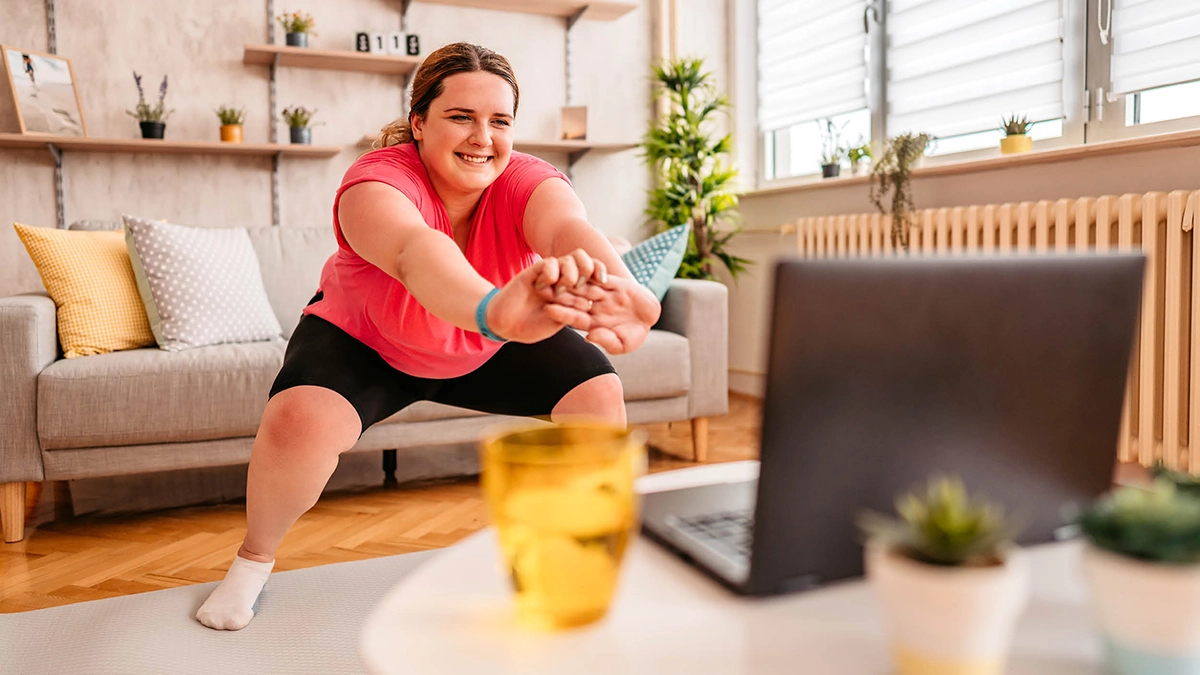- Voor zorgaanbieders
- Voor makelaars
Individuen en gezinnen
- Global Individual Health
- Spanish Domestic Individuals
Werkgevers
- SME Employer Health
- Large Corporation Health
- Spanish Domestic Employers
IGO & NGO
- IGO & NGO Health
Individuen en gezinnen
Topbestemmingen die we dekken
Ziektekostenverzekeringen voor expats
- Inside Expat Health Hub
- Een gids voor internationale ziektekostenverzekeringen voor gepensioneerden
- Een gids voor internationale ziektekostenverzekeringen voor werken in het buitenland
- Uitleg over ziektekostenverzekering voor expats
- Een gids voor internationale ziektekostenverzekeringen voor studenten
- Verhuizen naar het buitenland terwijl u zwanger bent
Kiezen voor een ziektekostenverzekering
- Reisverzekering vs. internationale ziektekostenverzekering
- Kiezen voor een ziektekostenverzekering
Landengidsen
- Landengidsen
Veelgestelde vragen
- Veel gestelde vragen
Werkgevers
Global Health Benefits Europe
- Gezondheidspolissen voor werkgevers
- Cigna Inspire-polis
2 - 149 werknemers
- Internationale gezondheidspolissen
Grote bedrijven
- Gezondheidspolissen voor Ondernemingen
Informatiebronnen voor leden
- Nuttige documenten en informatie
- Amerikaanse lijst met receptgeneesmiddelen
Klant
- Inloggen werkgevers
IGO, NGO & overheid
- Overzicht
IGO & NGO
- Intergouvernementele organisaties (IGO's)
- Niet-gouvermentale organisaties (NGO's)
Overheidsfunctionarissen
- Overheidsfunctionarissen
Informatiebronnen voor leden
- Veel gestelde vragen
- Cigna Health Benefits-app
- Informatie betreffende verzekeringsproduct
Klant
- Inloggen werkgevers
Onderwerpen
Individuen en gezinnen
-
Soorten dekking
-
Waar we dekking bieden
- Argentinië
- Australië
- Oostenrijk
- Brazilië
- Canada
- Chili
- China
- Costa Rica
- Egypte
- Frankrijk
- Duitsland
- Griekenland
- India
- Indonesië
- Ierland
- Italië
- Japan
- Koeweit
- Mexico
- Nederland
- Filippijnen
- Portugal
- Singapore
- Zuid-Afrika
- Spanje
- Zweden
- Zwitserland
- Thailand
- Turkije
- VAE
- Verenigd Koninkrijk
- Verenigde Staten
- Vietnam
-
Informatie
- Inside Expat Health Hub
- Een gids voor internationale ziektekostenverzekeringen voor gepensioneerden
- Een gids voor internationale ziektekostenverzekeringen voor werken in het buitenland
- Uitleg over ziektekostenverzekering voor expats
- Een gids voor internationale ziektekostenverzekeringen voor studenten
- Verhuizen naar het buitenland terwijl u zwanger bent
- Reisverzekering vs. internationale ziektekostenverzekering
- Kiezen voor een ziektekostenverzekering
- Landengidsen
- Veel gestelde vragen
-
Voor leden
Werkgevers
IGO, NGO & overheid
Gezondheidsblog
Voor makelaars
Let's Talk About Lifestyle
Let's Talk About Lifestyle
"When we visit a doctor, we tend to simply expect a prescription and often pay little heed to their advice on health – taking medication seems easier than saying no to a cupcake." Dr Stella George, Chief Medical Officer, International Health talks about lifestyle and the consequences of prolonged unhealthy behaviour.
Of the 41 million deaths due to chronic disease each year, 30% can be attributed by lifestyle risk factors. Eight million to tobacco use, 1,8 million to excess salt/sodium intake, over 1,5 million to alcohol, and nearly a million to insufficient physical activity.
Medication may have taken over as the first-line treatment for many chronic conditions, but better lifestyle can reduce reliance on high levels of pharmacological intervention. Good lifestyle has the power to prevent and even reverse the most prevalent and costly chronic conditions.
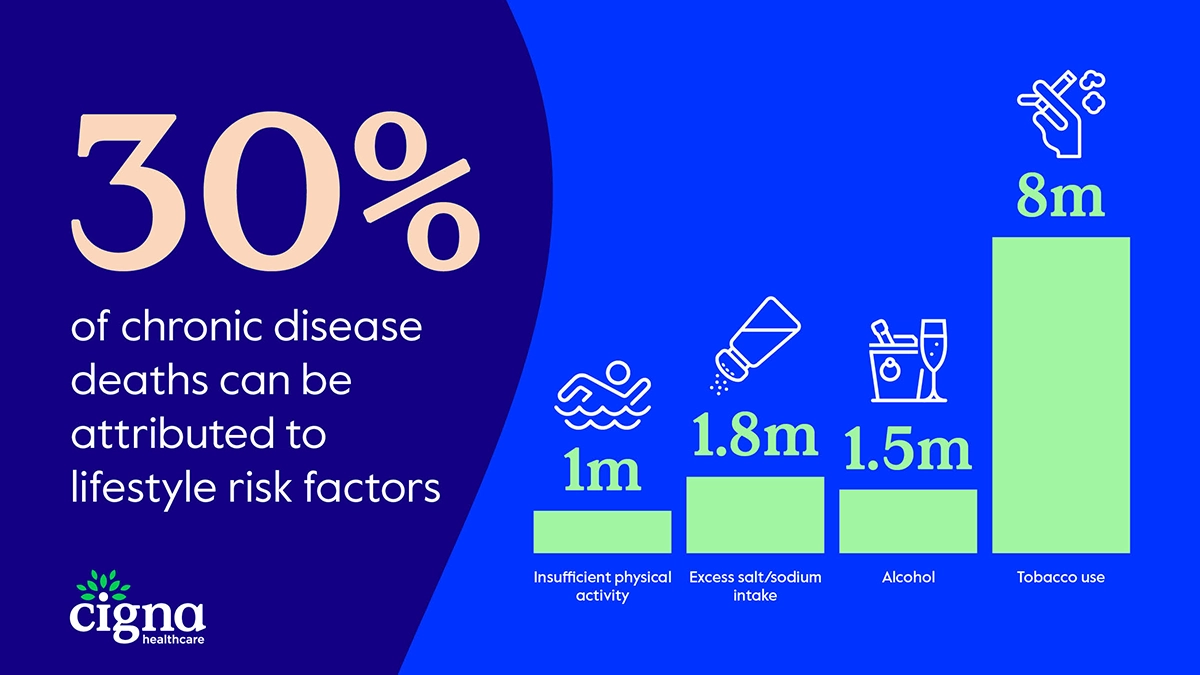
Lifestyle over medication
Dietary intervention and physical activity could reduce diabetes-related deaths by more than a million every year. Research shows that lifestyle treatments can reduce or reverse long-standing Type 2 Diabetes within just three months.
Other chronic conditions that can be significantly impacted by lifestyle modification include chronic kidney disease, progression from prodromal to manifest Parkinson’s disease, mental health conditions, autoimmune diseases, and non-alcoholic fatty liver disease (NAFLD).
What is beautiful about lifestyle is it actually augments and strengthens our natural defense systems, thereby reducing the need for artificial or external remedies.
For people with hypertension (high blood pressure) – one of the most important risk factors for cardiovascular diseases – it’s been shown that lifestyle changes can reduce the required number and/or dose of blood pressure medications. One study found that six months after stopping these medications, only 29% of participants who lost weight and restricted their sodium intake required medication again. Conversely, 60% of participants who failed to adopt these changes did need further medication.
Chronic back pain is another interesting area where lifestyle remedies are becoming ever more vital. Our claims data shows chronic lower back pain is an increasingly worrying health threat: back problems linked to musculoskeletal conditions have spiked significantly since the pandemic, up 19% in 2021 compared to pre-COVID levels, 16% in 2022, and 20% in 2023.
Promisingly, the World Health Organization has been advocating for lifestyle changes over pharmacological intervention in this area. Their recent guidance emphasizes the use of acupuncture and cognitive behaviour therapy, as well as for treatment that is holistic, person-centred, integrated, and coordinated.
Stress, the common denominator
Two decades ago, when I was studying medicine, we never talked about stress in terms of lifestyle risk factors. It was always about exercise, diet, sleep, smoking, and alcohol.
But the table below shows just how stress impacts every aspect of our lifestyle.
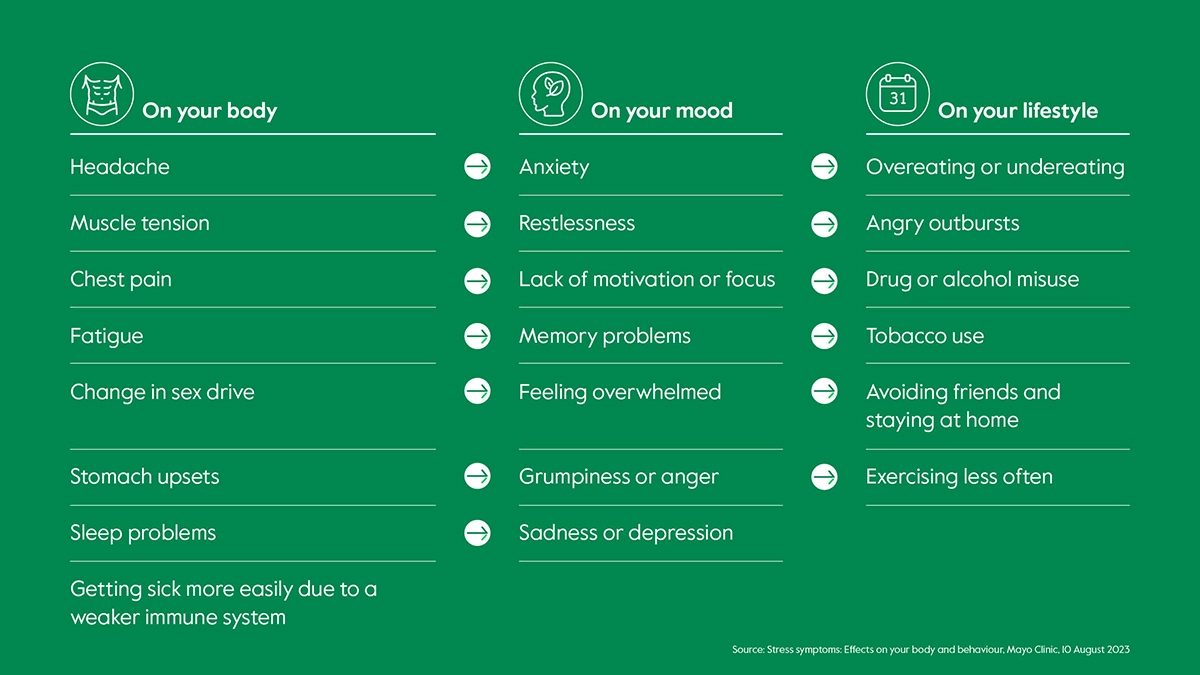
If we’re stressed, we’re less likely to make healthy choices in diet and more unwilling to exercise or hang out with friends. Stress also increases tobacco, alcohol, and drug use. Even worse, chronic stress can overwhelm our mind and body, causing a number of physical health issues which raise our vulnerability to viral infections and life-threatening conditions, such as hypertension, heart disease, Type 2 diabetes, obesity, and metabolic syndrome.
Physical activity – a silver bullet?
Physical activity changes our energy pattern and affects what we eat, the way we sleep, and sustainable weight management. Best of all – it does not need to involve Olympic-level athleticism or step-counts.
We looked thoroughly at the consequences of insufficient physical inactivity in our previous article, including evidence that higher amounts of sedentary behaviour lead to a gamut of chronic diseases and early death.
Adequate physical activity at the age of 50 and above can be life-changing, even if you have never done any before, because without it your body can quickly become frail. Muscle loss at this age becomes more prominent and undermines your strength, swiftness, stamina, while at the same time you may develop osteoporosis or reduced balance. All these factors mean that without adequate exercise, events such as a fall can more easily result in a fracture, which can take longer to heal and result in further complications.
To slow muscle loss and boost bone health, you need to add protein-rich foods and necessary amounts of vitamins and minerals to your diet, as well as maintaining regular physical activity. This should include 30 minutes of aerobic exercise per day and two hours of exercise to help with strength, balance, and flexibility per week (such as yoga, tai chi, Pilates, and/or isometric weightlifting).
Routine and social network keep us on course
We’re creatures of habit, so developing healthy routines is among the most powerful tools we have to ensure healthier lifestyles.
From childhood onward, establishing good routines set us up for healthier behaviours – that is, dedicating time to eat, sleep, exercise, learn, and listen.
Routine is important for cognitive function and alleviating unnecessary stress. In work, we know reliable processes help us to avoid using brain power on simple tasks, opening the door for more creativity, more time for exercise, and better social connections.
Family, however, is perhaps our most vital social outlet when it comes to forming healthy lifestyle habits. Whether it’s around the dinner table, in the home, out and about, or with the extended family, research shows the family health climate is vital to our perception and cognition of routine. This includes eating all our veggies, going to bed at a certain time, doing our homework, talking about our day, and expressing ourselves.
It’s never too late to cultivate a habit, though. Having an accountable partner, setting specific, measurable, achievable, relevant, and time-bound goals, and following routine are all fundamental lifestyle principles we can live by at any stage in life.
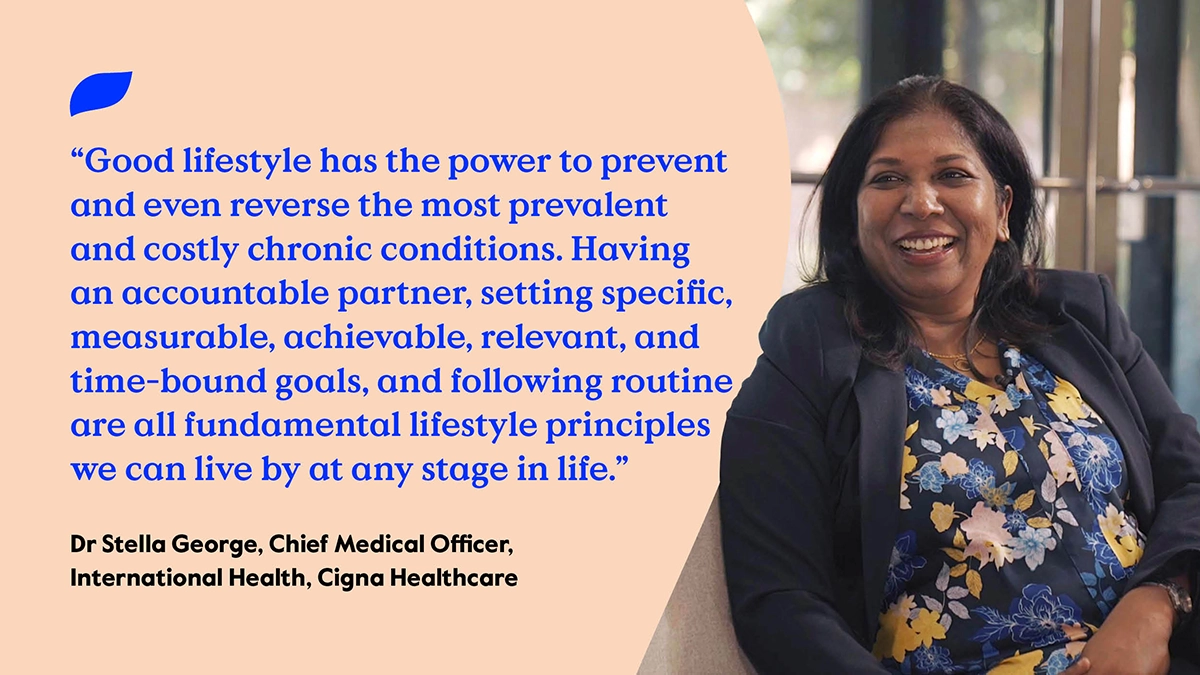
Lifestyle behaviours we can all adopt to live healthier lives
The concept of lifestyle is broad, but it boils down to a few fundamental truths. Eat well, exercise, nurture social connections, and embrace routine. Beyond that, there are a few habits that we know really help to establish holistic physical, mental, and emotional well-being. Some may seem obvious, but they are all essential.
- Maintain a balanced diet
Ensure your diet includes a variety of nutrient-rich foods. Try to eat a balanced diet and eat at regular intervals. Drink enough fluids. Eat lots of fresh fruits and vegetables if possible.
- Prioritize good sleep
Establish a consistent sleep schedule to ensure adequate and restful sleep. Make sure your sleeping area is quiet, dark, relaxing, and a comfortable temperature. Limit your use of electronic devices, and avoid large meals, caffeine, and alcohol immediately before bedtime. Get some exercise; it helps you fall asleep more easily at night.
- Incorporate regular exercise
Engage in physical activities that you enjoy, promoting not only physical fitness but also mental well-being.
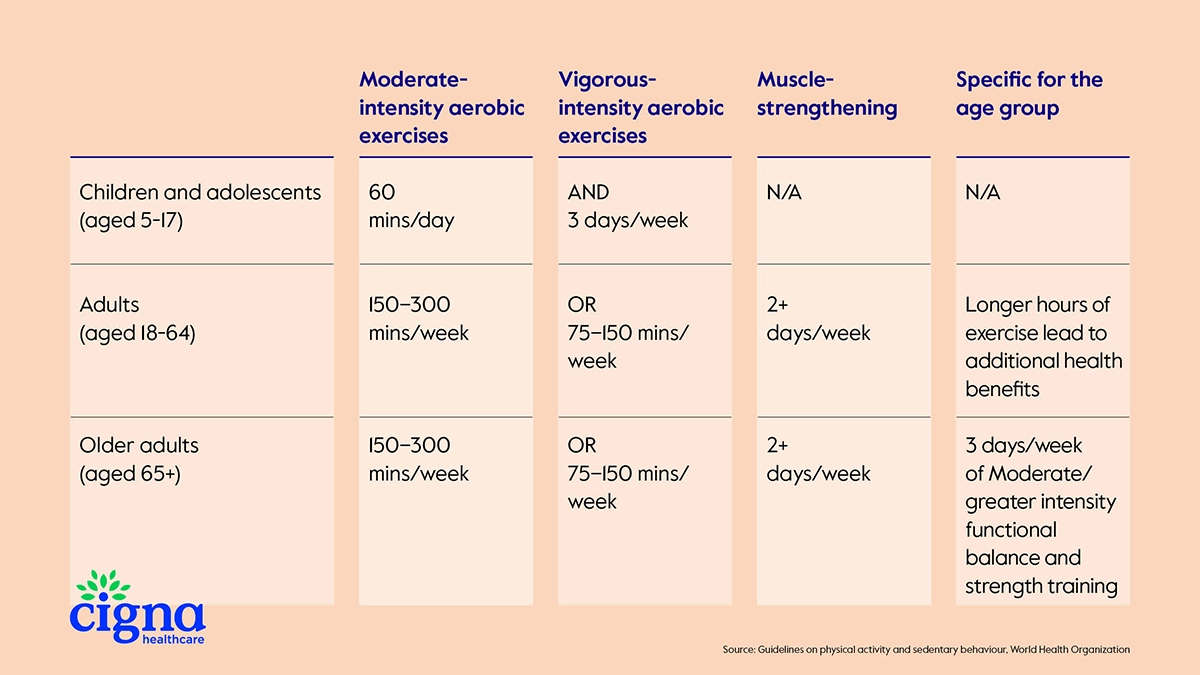
- Cultivate social connections
Foster relationships with friends and family, as social connections contribute to emotional support and help reduce stress.
- Practice breathwork
Incorporate intentional breathing exercises into your routine to reduce anxiety, enhance relaxation, and manage stress effectively. Deep and slow breathing reduces anxiety levels and helps to regulate emotions.
- Embrace meditation
Dedicate time to meditation for mental calmness, improved focus, and the development of cognitive skills such as learning and memory. Meditation may also help you manage symptoms of some medical conditions.
- Integrate yoga into your routine
Explore the benefits of yoga, combining physical postures, breath control, and meditation to enhance flexibility, strength, and mental well-being.
- Practice mindfulness in the workplace
Adopt mindfulness practices, such as meditation, in the workplace to enhance your attention span, emotional regulation, and empathy. Allocate time for mental breaks, and learn techniques to manage and regulate emotions – this will help foster a positive and resilient mindset in both your professional and personal life.
A healthy routine makes even major tasks manageable by enabling you to break them into regular, achievable segments. The activities suggested above can help you reach a state of calmness that empowers you to make healthy choices, break your goals into smaller chunks, and improve your mental and physical health through a healthier lifestyle.
Gerelateerde artikelen
©Cigna 2024
This article serves only as a reference and is intended for informational purposes only. Nothing in this article constitutes legal, tax, financial planning, health or medical advice including diagnosis or treatment. Any reference to products or services offered by Cigna are available except where prohibited by applicable law and subject to terms and conditions. Cigna have no involvement in, nor are we liable for, any decisions and/or outcomes that are made or determined by FocusPoint International.
Contact
Wij zorgen dat u altijd de juiste informatie krijgt, ongeacht of u een lid van ons verkoopteam wilt spreken of algemene hulp nodig heeft als lid van Cigna.
ContactgegevensPopulaire links
Informatie
© 2025 Cigna Healthcare. Alle rechten voorbehouden.
*NB: dit is een vereenvoudigde weergave van de mogelijke vergoedingen en vermeld niet de voorwaarden en uitsluitingen die per vergoeding van toepassing kunnen zijn. De vergoedingen kunnen van tijd tot tijd veranderen. Sommige vergoedingen kunnen deel uitmaken van een optionele module. Raadpleeg de Klantengids voor meer informatie.
Deze website wordt aangeboden door Cigna European Services (UK) Limited, een bedrijf naar het recht van Engeland en Wales met als geregistreerd adres 13th Floor, 5 Aldermanbury Square, Londen EC2V 7HR en registratienummer 00199739. De naam Cigna Healthcare, het logo en andere merken van Cigna Healthcare zijn eigendom van Cigna Intellectual Property, Inc., met een licentie voor gebruik door Cigna Group en zijn operationele dochterondernemingen.
Als u deze links selecteert, wordt u weggeleid van Cignaglobal.com. Cigna Healthcare heeft geen controle over de inhoud of links op de gelinkte sites.

